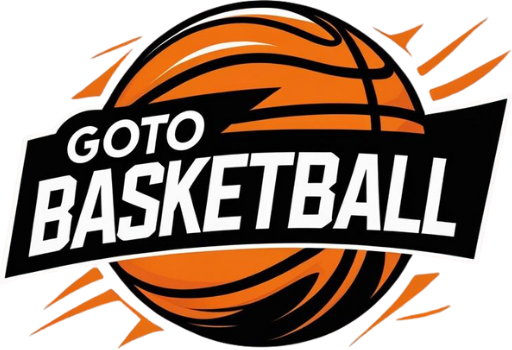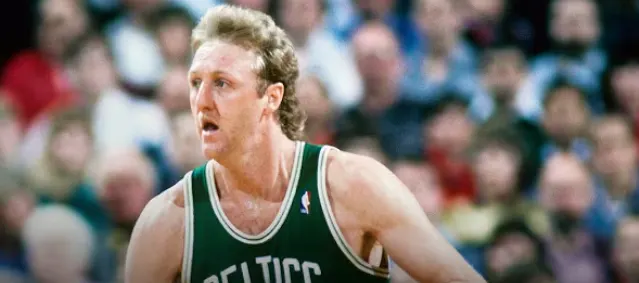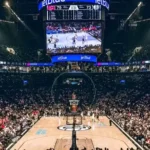The history of basketball shares its history with legends, yet not a lot of them made such an imprint on it as Larry Bird did. The Sporting In collaboration with the Wooden Award and the Los Angeles Athletic Club, celebrates the 50th anniversary of the John R. Wooden Award. We highlight an icon that had an impact far beyond the hardwood. The April 10, 202,6, ceremony gives us a chance to consider such legends as Bird, whose career successes are unmatched.
- From French Lick to Legend: Humble Roots and Unyielding Drive
- The Rivalry That Defined a Generation: Bird vs. Magic
- A Collegiate Journey to Stardom
- Dominance in Green: Larry Bird’s NBA Reign
- Beyond the Court: Coach, Executive, Consultant
- An Enduring Basketball Icon: Accolades and Philosophy
- The Bird Standard: A Final Take
The most remarkable thing about Larry Bird is that he has a resume that is like the NBA history in that he is the only person in the history of the league to win Rookie of the Year, Most Valuable Player, Finals MVP, All-Star MVP, Coach of the Year, and Executive of the Year awards. It is a testament of a mind and motivation that is solely devout to the game at all levels.
From French Lick to Legend: Humble Roots and Unyielding Drive
Larry Joe Bird was born on December 7, 1956, in the small and humble town of French Lick, Indiana, and his journey to greatness started well before reaching the glare of the lights of professional sports. His modest birth is the secret of his fame, and gave him the title of the Hick of French Lick, the title which he bore with equal pride as Larry Legend.
The competitive nature of Bird was very clear at a tender age. He once even said, I hate to lose more than I like to win and that philosophy was the driving force behind every action he did when he was on the court. That unstoppable ambition made him a high school prodigy at Springs Valley. In his senior year of 1974, he posted an incredible 31 points, 21 rebounds, and four assists per game, and his team won a state sectional championship. His legendary jersey number 33, now hung retired in his high school, college, and professional arenas, was originally introduced in honor of his brother, Mark.
The Rivalry That Defined a Generation: Bird vs. Magic
Any mention of the career of Larry Bird will not be complete without mentioning his unparalleled rivalry with Earvin Magic Johnson. This was not a professional-level confrontation at all, but instead, one of the fires was sparked on the big stage during the 1979 NCAA tournament championship game. The Indiana State Sycamores of Bird had a collision with the Michigan State Spartans of Magic in a Salt Lake City match that was much anticipated.
The game has the credit of becoming the only game in college basketball history to receive the No. 1 television rating, although the Sycamores ended up losing the game, which was a strong indicator of the interest the people had in the rising stars. It was a competition that would make their whole career paths in the field rival each other to greater heights than ever before.
Their battles on court, which were stiff competition, extended into the NBA. Then, in only five years of that NCAA classic, they came up against each other again in the NBA Finals. Bird and his Boston Celtics were victorious this time, bringing him his first NBA championship. But through the strenuous rivalry, a profound mutual respect and even friendship flowered. Their special relationship was best summed up at the retirement party of Bird by Magic Johnson, who allegedly said, Larry, you only told me one lie. You said there will be another Larry Bird. Larry, there is never going to be another Larry Bird.
A Collegiate Journey to Stardom
Although he was dominant in high school, Bird did not get to collegiate glory easily. He first took a scholarship to play at Indiana Hoosiers under the legendary coach Bob Knight in 1974. But he failed to adapt to the bigger campus setting and soon headed back home and took up work, and joined Northwood Institute.
It took Bird another year before he felt his stride at Indiana State University in Terre Haute. What ensued was a three-year spell that is historic as he brought the Sycamores to their maiden trip to the NCAA tournament in 1979, with a record of 33-0 to the championship game. They also had just lost the national title by a sliver, but the success of the Bird in college that year was enormous, including the most coveted honor of all, the Naismith College Player of the Year award.
Dominance in Green: Larry Bird’s NBA Reign
Larry Bird was drafted by the Boston Celtics and served 13 marvelous years as the master of the green and white court. He had an instant and tremendous impact, becoming the NBA Rookie of the Year in 1980.
Bird was the undisputed head of the Celtics throughout the 1980s, having led the team to three NBA championships. His personal achievements at this time were staggering: he was elected to the All-NBA First Team nine times and also won the league MVP three years in a row, between 1984 and 1986. He also won the MVP of the NBA Finals two times, in 1984 and 1986, which confirmed his reputation as one of the ultimate clutch players in the game. In the later years of his successful playing career, Bird could take the honor of representing his nation as the U.S. Olympic ‘Dream Team’ in the Barcelona Games in 1992, a fitting culmination to an incredible playing career.
Beyond the Court: Coach, Executive, Consultant
Larry Bird’s retirement from playing after the 1992 Olympics did not signal an end to his basketball journey. His passion for the game simply transitioned to new roles. He embarked on a highly successful coaching career with the Indiana Pacers, famously leading them to the NBA Finals in 2000. Later, he served as the Pacers’ President of Basketball Operations, where his keen eye for talent and strategic understanding continued to shape the franchise. Today, he remains a valuable consultant for the team, his insights and experience still revered. The man, quite simply, bleeds basketball.
An Enduring Basketball Icon: Accolades and Philosophy
Larry Bird’s enduring impact on basketball is enshrined in a long list of honors. In 1996, he was named to both the NBA’s 50th Anniversary All-Time Team and recognized as one of the 50 Greatest Players in NBA History. His legendary career was formally celebrated with his induction into the Naismith Memorial Basketball Hall of Fame in 1998.
Bird’s philosophy on achievement resonates through his famous quote: “A winner is someone who recognizes his God-given talents, works his tail off to develop them into skills, and uses those skills to accomplish his goals.” By every measure, Larry Bird not only accomplished his goals but consistently exceeded them, leaving an indelible mark on every facet of the game he touched.
The Bird Standard: A Final Take
Larry Bird was more than just a great basketball player; he was a basketball savant. He transcended the game not with breathtaking athleticism but with an unparalleled will to win, an uncanny basketball IQ, and an innate ability to deliver in the most crucial moments. His rivalry with Magic Johnson wasn’t just a contest between two individuals; it was a phenomenon that pushed both to unparalleled greatness and created some of the sport’s most iconic memories.
Coming from such humble beginnings and rising to every challenge, Bird embodied the spirit of a true champion, both on the court and in every leadership role he embraced. He saw the game differently, played it differently, and continues to influence it profoundly. It’s safe to say, we may genuinely never witness another figure quite like Larry Bird.





